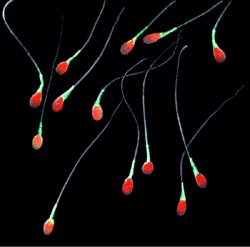How stress echoes down the generations
By The Economist,
The Economist
| 05. 24. 2018
The effects of child abuse can last a lifetime. Neglected or abused children have a higher risk of developing all sorts of ailments as adults, including mental illnesses such as depression but also physical ones like cancer and stroke. In fact, the effects may last even longer. Emerging evidence suggests that the consequences of mistreatment in childhood may persist down the generations, affecting a victim’s children or grand-children, even if they have experienced no abuse themselves.
Exactly how this happens is not well understood. Rigorous experiments on human subjects are difficult. Scientists have therefore turned to rats and mice. But now Larry Feig of Tufts University and his colleagues have shown that psychological stress seems to cause similar changes in the sperm of both mice and men. Their study is published this week in Translational Psychiatry.
Biologists know that traits are carried down the generations by genes. Genes encode proteins, and proteins make up organisms. That is still true. But it has recently become clear that it is not the whole story. Organisms regulate the activity of their genes throughout...
Related Articles
By Arthur Lazarus, MedPage Today | 01.23.2026
A growing body of contemporary research and reporting exposes how old ideas can find new life when repurposed within modern systems of medicine, technology, and public policy. Over the last decade, several trends have converged:
- The rise of polygenic scoring...
By Stephanie Pappas, LiveScience | 01.15.2026
Genetic variants believed to cause blindness in nearly everyone who carries them actually lead to vision loss less than 30% of the time, new research finds.
The study challenges the concept of Mendelian diseases, or diseases and disorders attributed to...
By David Cox, Wired | 01.05.2026
As he addressed an audience of virologists from China, Australia, and Singapore at October’s Pandemic Research Alliance Symposium, Wei Zhao introduced an eye-catching idea.
The gene-editing technology Crispr is best known for delivering groundbreaking new therapies for rare diseases, tweaking...
By Josie Ensor, The Times | 12.09.2025
A fertility start-up that promises to screen embryos to give would-be parents their “best baby” has come under fire for a “misuse of science”.
Nucleus Genomics describes its mission as “IVF for genetic optimisation”, offering advanced embryo testing that allows...




